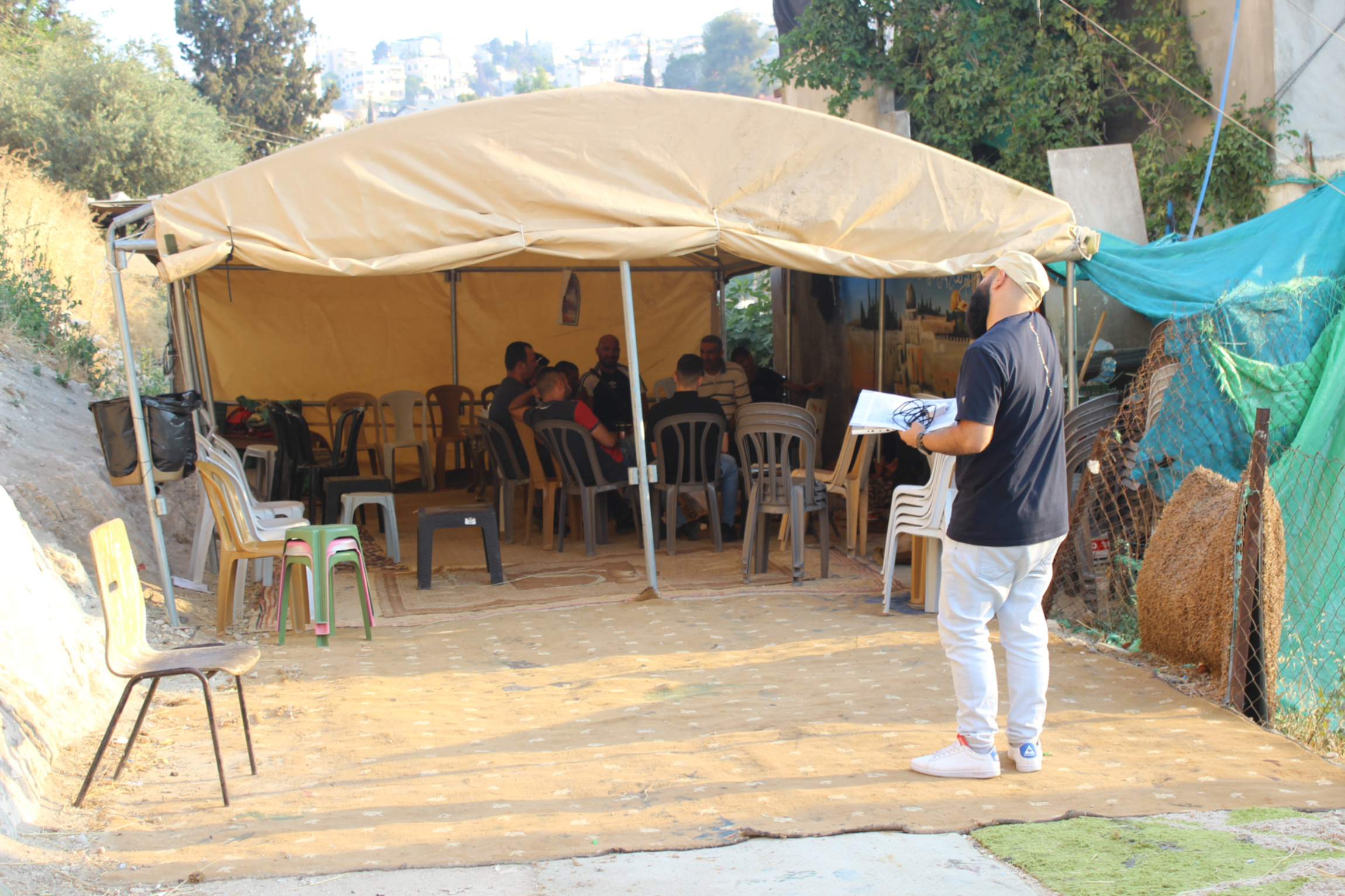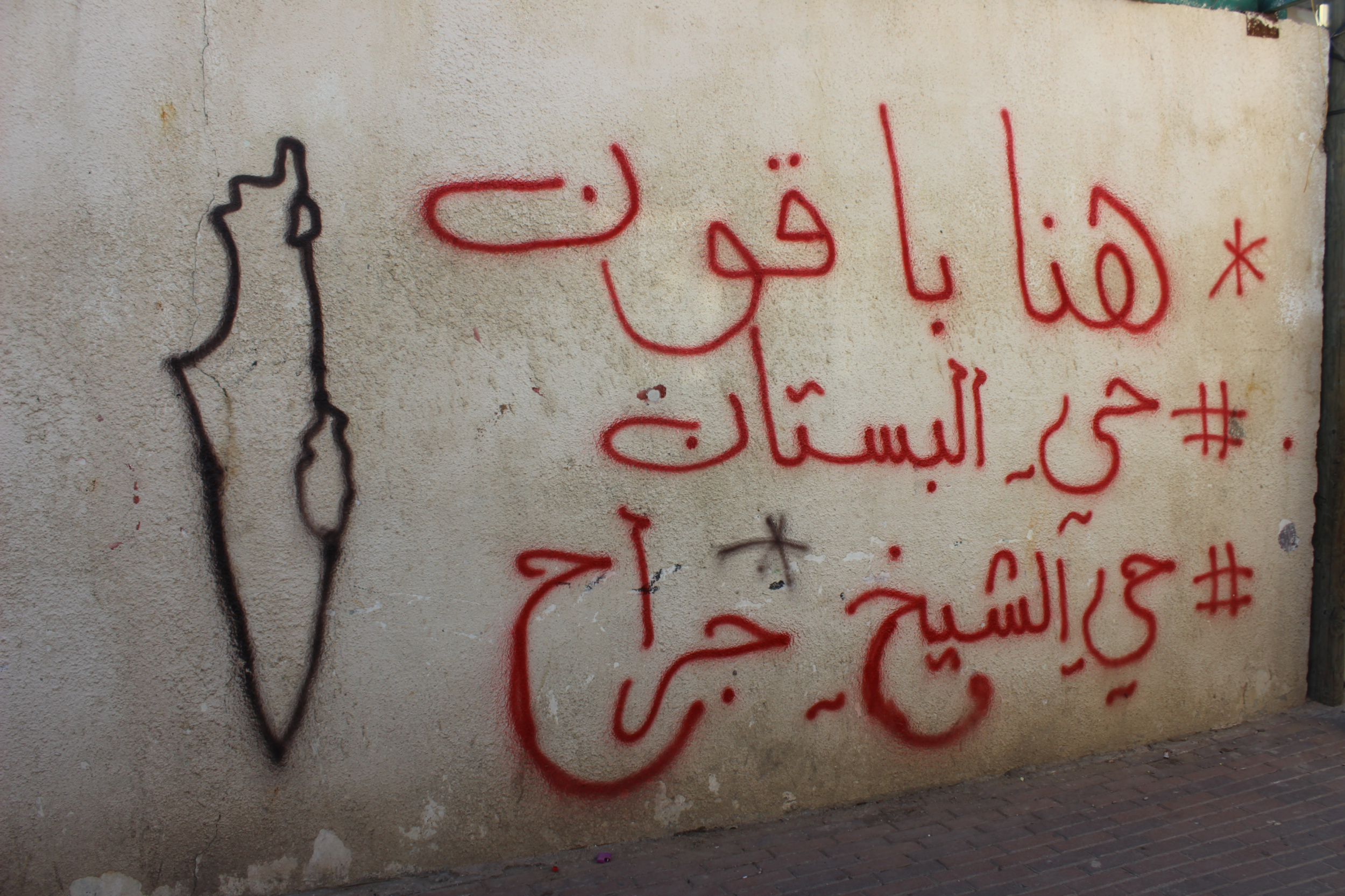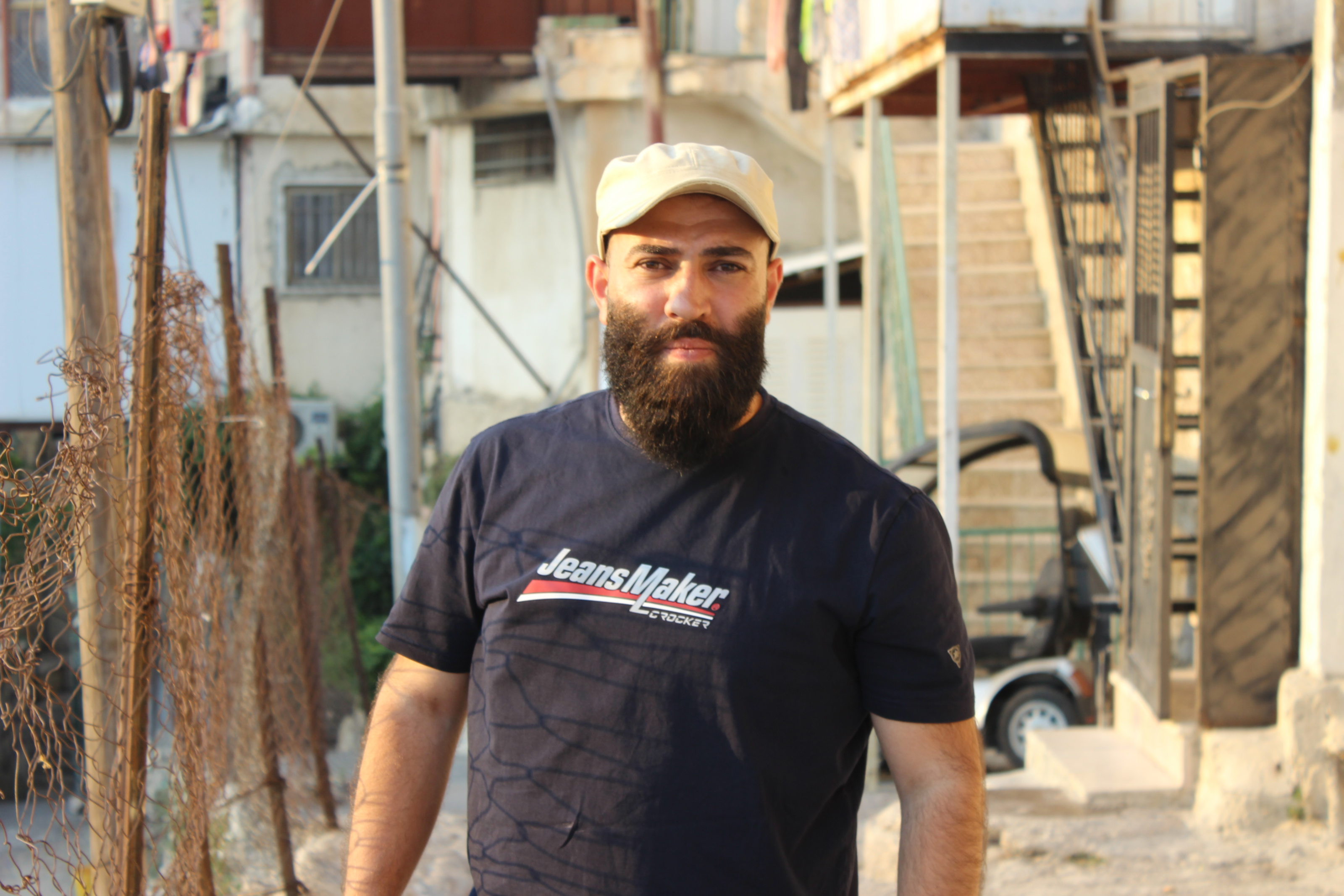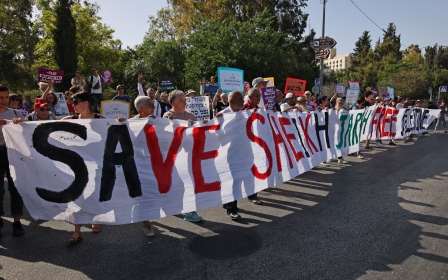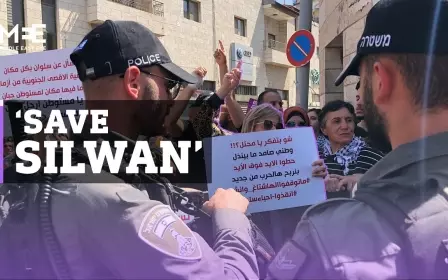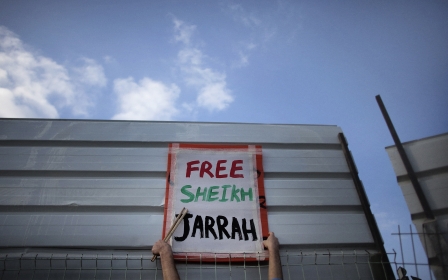Silwan: 170 members of a Palestinian family face eviction in three neighbourhoods
In the Palestinian town of Silwan, nestled in the outskirts of the Old City of Jerusalem to the south of Al-Aqsa Mosque, around 7,000 residents are all too familiar with the threat of forcible displacement also facing the residents of the Sheikh Jarrah neighbourhood, 3.5km to the north.
The Odeh family is one of the town’s families who have not known peace of mind for years.
Of its 170 members, those living in houses in the town’s al-Bustan and Wadi Yasul neighbourhoods are facing the danger of demolition under the pretext of living in houses built without permits. Meanwhile, others living in the Batn al-Hawa neighbourhood are being threatened with eviction in favour of Israeli settlers who claim they have ownership over the land.
In al-Bustan, Middle East Eye met with several members of the family, including Silwan, a defiant seven-year-old girl named after the town itself, and her 11-year-old brother Adam who have yet to experience a normal childhood.
“I take my favourite toys with me to school every day in case the occupation forces suddenly come and destroy our home while we are away,” Silwan says
'I take my favourite toys with me to school every day in case the occupation forces suddenly come and destroy our home while we are away'
- Silwan Odeh, resident of Silwan
“I told my father not to get angry if they did because I plan on becoming an architect and I will build him a new house.”
There are more than 58,500 Jerusalemites living across the 12 neighbourhoods of Silwan, an area of 5,640 dunums (564 hectares) where 2,800 Israeli settlers live in 78 settlement posts, according to the head of Silwan Lands Defence Committee, Fakhri Abu Diab.
Adam, Silwan’s 11-year-old brother, sat beside her looking worried as he said he had a dream the night before that Israel police forces had stormed their house, destroyed it in front of them and then killed the whole family.
“I don’t live a normal childhood in Silwan. I see children getting detained every day and I always think that I will be next,” Adam says.
“We live facing the fate of all of our homes being destroyed and my only wish is to live in peace in my house for the rest of my life.”
Generations harrassed
With her eyes moving between her children, Amani Odeh urges Adam to study hard for the remaining final exams of the academic year so that he could spend his time at the sit-in tent that has been set up in solidarity with the residents of Batn al-Hawa neighbourhood.
Amani says that she herself was raised in a house threatened with demolition in the al-Bustan neighbourhood.
“I went through difficult times during my childhood just like my children are now. The occupation forces never stopped detaining either my father or one of my brothers, on a weekly basis.
“In anticipation of arrests, we would prepare ourselves every Wednesday evening by getting dressed and staying alert because a raid of our house and the arrest of a family member had become inevitable.”
Amani went on to study dentistry at An-Najah National University in Nablus, north of the occupied West Bank, where she lived in a state of constant longing to be in her hometown. Upon graduation, the young dentist returned to Silwan, where she married her cousin and moved to live with him in a house located in the same neighbourhood, that was also under threat of demolition.
“I avoid watching the news because Adam is always anxious and dreads hearing news about court hearings regarding the neighbourhood’s residents or news about confrontations in Silwan and Sheikh Jarrah,” she says.
Amani adds that whenever confrontations between Palestinians and Israelis erupt anywhere, Adam would repeatedly call her at the clinic, asking her to return home out of fear for her safety. He also asks her the same questions every day about the possibility of Israeli forces attacking them or raiding their house and demolishing it.
Amani stresses the importance of social media in communicating the cases of Sheikh Jarrah and Silwan to the rest of the world, hoping that the electronic campaign will lead to the freezing of the eviction and demolition orders.
Harsh reality
On a tour of al-Bustan and Batn al-Hawa neighbourhoods, Qutaiba Odeh, Amani’s 26-year-old brother-in-law, says that his family, including his parents, brothers, their wives and their 10 children, have been living in a state of constant stress since they were served with a demolition order in 2004.
In 2010, an Israeli court issued another demolition order on a family home they own in the nearby Wadi Yasul neighbourhood. A year later, settler organisations started harassing them, and the family was given an order to leave their house in Batn al-Hawa to make way for settlers.
Palestinians say the aim of these orders is the Judaization of the area and to rid it of Palestinians, however Israeli authorities have given different justifications behind the orders issued in Silwan.
The municipality of Jerusalem claims that around 100 houses in al-Bustan were illegally built and must be removed to clear the area for a park under the name “King’s Garden”. Israelis claim that the area was the site of the biblical garden of King David.
Meanwhile, Israeli organisation Ateret Cohanim claims that Batn al-Hawa is a Jewish endowment land that was granted to Jews in the 19th century and that the organisation itself is now the guardian of the land and is claiming back the property and demanding the eviction of 700 Palestinian living in the area of around five dunums.
Zuhair al-Rajabi, the head of Batn al-Hawa Committee, says that settlement activity in the town started in 2004 with two posts, the number of which increased to six by 2014.
He adds that the house eviction orders in Batn al-Hawa, where 7,000 Palestinians, have exceeded 87 in number.
In Wadi Yasul, Israeli authorities plan to demolish tens of Palestinian house because one of the intersections of the planned American Road, a controversial highway meant to link settlements together, is designed to pass throught the neighbourhood.
Qutaiba says that more than 7,000 Palestinians in Silwan are facing the threat of forcible eviction.
The Palestinian speaks of a childhood spent at the sit-in tent in al-Bustan neighbourhood for lack of any recreational spaces for children. In 2012, he established the al-Bustan organisation to accommodate Silwan’s children and youth. But, even this venue has come under the threat of forced eviction.
“There are 124 families, composed of 1,500 people living on an area of 50 dunums in al-Bustan neighbourhood whose homes are threatened to make way for a Jewish national park,” Qutaiba says.
“Is there anything harsher than this reality?”
‘Live on the ruins of our homes’
Walking north toward Batn al-Hawa, where walls are decorated with murals and Palestinian flags adorn the roofs despite daily settler harrassment, Qutaiba reflects on the fate of the Odeh family if the evictions and demolitions do take place.
'We will sleep on the ground under the cover of the sky and live on the ruins of our homes without hesitation'
- Qutaiba Odeh, Silwan resident
“Levelling our homes to the ground would be easier than evacuating them in favour of settlers, which makes our reality in Batn al-Hawa the most psychologically painful,” he says.
Qutaiba expresses his deep sorrow that Palestinians in occupied East Jerusalem are unable to protect the homes they have lived in, building memories and dreams, for decades, adding that what Silwan residents are going through could only be described as a war crime and a continuous Nakba, or Catastrophe.
“We are living in a state of slow death, but the movement in Sheikh Jarrah has given us a breath of fresh air, and we hope we will receive similar solidarity, especially given that residents of six neighbourhoods out of 12 in Silwan are in danger of forcible displacement,” he says.
“Support is essential for this town, which is considered the southern protector of al-Aqsa Mosque.”
Qutaiba concludes by saying that Silwanis are buying time in Jerusalem by acquiescing to pay the municipality’s hefty fines for buildings it alleges were built without permits in exchange for delaying the demolitions.
However, residents think the orders will be carried out anyway, and if they are, Qutaiba says “we will sleep on the ground under the cover of the sky and live on the ruins of our homes without hesitation.”
Middle East Eye propose une couverture et une analyse indépendantes et incomparables du Moyen-Orient, de l’Afrique du Nord et d’autres régions du monde. Pour en savoir plus sur la reprise de ce contenu et les frais qui s’appliquent, veuillez remplir ce formulaire [en anglais]. Pour en savoir plus sur MEE, cliquez ici [en anglais].


